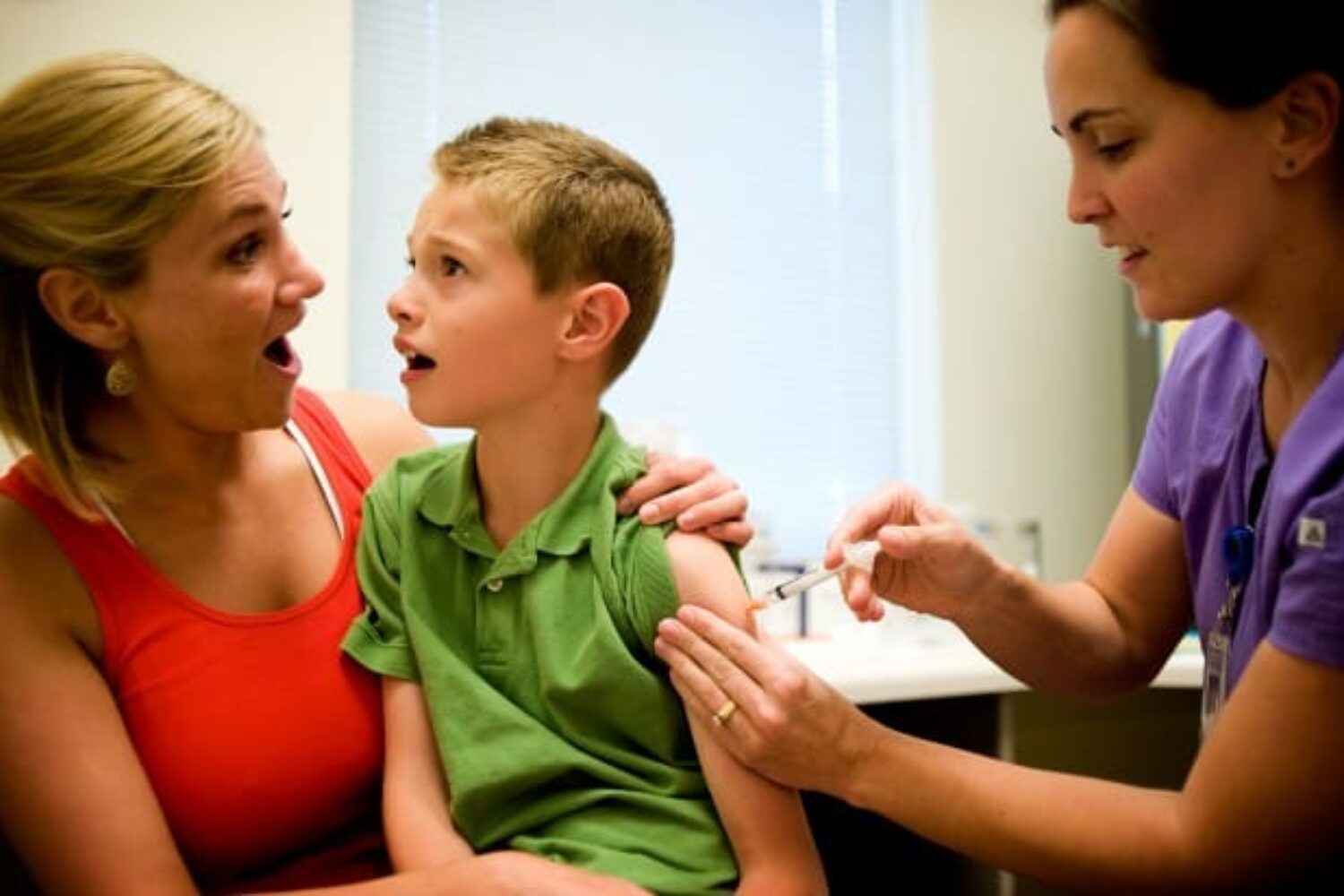Not only are children more susceptible to catching flu and other bugs because their immune systems are not as strong as those of adults, but they’re also more likely to spread the disease.
Young children often don’t cover their mouth or use a tissue when they cough or sneeze. Nor do they tend to wash their hands properly or regularly enough. Those at nursery or school also come into contact with more people, including other children, teachers, parents and carers.
We’ve said before how bugs are most commonly spread by touching and children are very tactile with each other and their parents or carers, grandparents or siblings. So it’s no wonder they’re more exposed to and more likely to pass on flu to others.
Vaccination
The government recognises children play a big role in spreading flu and last year started giving the flu vaccine as part of the NHS childhood vaccination programme.
From September 2013, all children aged two and three were offered a new nasal spray flu vaccine, along with those aged 2-18 with long-term health conditions such as diabetes, heart disease and lung disease. The nasal spray flu vaccine will be rolled out to all children aged 16 and under over time.
Flu data collected from schools
The launch of the nasal spray flu vaccine last year also coincided with flu data being collected from schools for the first time (winter 2013-14), as part of the UK’s annual Flusurvey. Scientists from the London School of Hygiene & Tropical Medicine, which carries out the Flusurvey in partnership with the British Science Association, wanted to understand the role children play in catching and spreading flu.
Even in a ‘light’ flu season, such as the one we’ve just had in 2013-14, children tend to have the highest rates of flu. Flusurvey’s recent results show that the 0-18 age group had more instances of flu and that living with children, or being around large groups of them, increased people’s chances of getting flu.
Flusurvey researcher Dr Alma Adler, Research Fellow at the London School of Hygiene and Tropical Medicine, speaking in December 2013, said: “Flu levels are still very low but where there are flu cases, we’re seeing most of them among under-18s. This is in line with what we already know from previous years about children being the ‘key spreaders’ of flu.”
Prevent contamination
As well as the flu vaccination, washing hands regularly and keeping surfaces clean are the best ways of preventing the spread of flu among children. At Capital, we provide our IT cleaning services to many schools, colleges and universities across the UK. Professional IT cleaning minimises the health risks and likelihood of sickness absence from many bugs, not just flu. This is especially important in schools, where children are touching many different surfaces and coughing or sneezing over each other.
We can install antibacterial foam dispensers and provide regular antibacterial cleaning and sanitising of computer equipment in classrooms, improving not only health, but also longevity of equipment. We also offer an IT Health Pack for schools and will carry out a free site survey for you.
Written by Jane Rogers
Dirty Keyboards and Smartphones contain more germs than toilet seats
7 Tips: How to keep a clean and germ free office
Eating At Your Desk Will Not Make You Successful
Who has flu in your office?
Meet the Team: Alex in Scotland – IT Cleaning Service Specialist
What is Freshers’ Flu? Causes, symptoms and prevention
Error: Contact form not found.
For more information on Capital’s computer cleaning services in schools, contact us on 0800 013 2182 or contact us here







